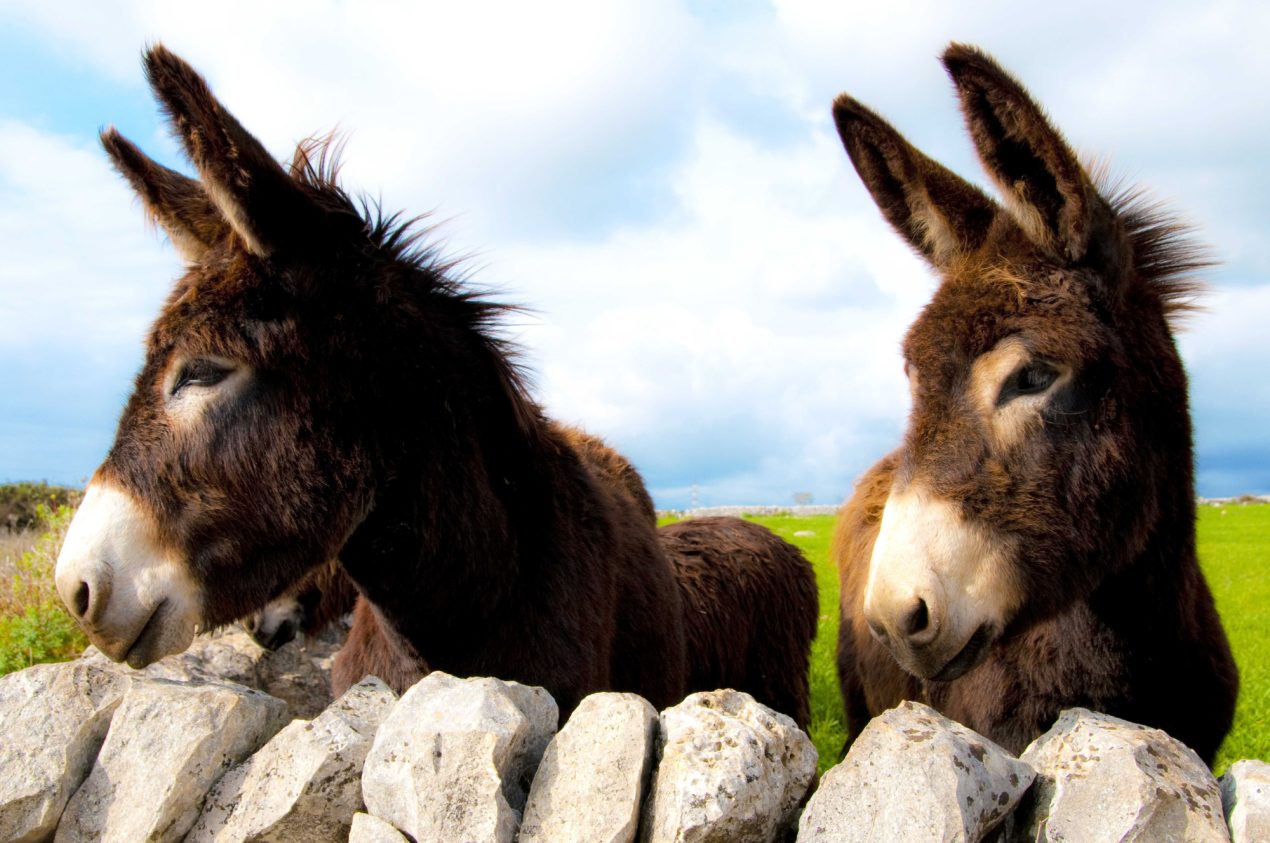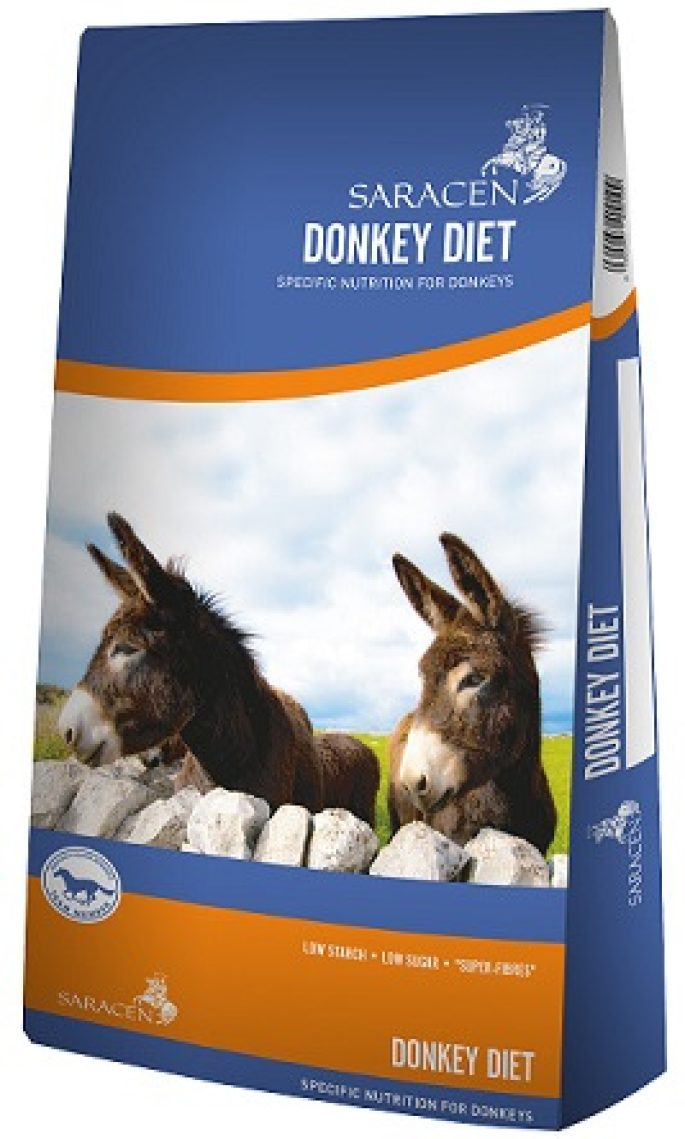Feeding Donkeys

Donkeys have evolved to survive in some of the harshest environments. They are adapted to marginal desert lands where they browsed large plains that were devoid of lush vegetation. They survived on a diet that was highly fibrous and consisted of low-quality roughages. Their digestive systems are highly efficient at digesting these fibrous feeds, absorbing and utilising the available nutrients. Compared to horses, they have a much lower energy and protein requirement, as well as a much more efficient digestive system. This means that most donkeys only need to be fed forage with a low nutritional value and don’t (usually) require additional hard feed. The exceptions to this rule would be underweight donkeys, donkeys with poor teeth or lactating donkeys.
Forage
In terms of the forage to feed, again donkeys differ from horses in that in the majority of cases donkeys only need to be fed good quality straw. Donkeys have stronger jaws and more effective dentition than horses are therefore much more capable of chewing and digesting straw. Like horses donkeys should be fed a minimum of 1.5% of their bodyweight in forage per day. In terms of hay and haylage, these are normally too high in energy (calories) and protein for most donkeys, but they can fed in small quantities if required. Guidelines suggest that this should be no more than 25% of the total forage for donkeys that are the correct weight, and no more than 50% of the total forage for donkeys that are underweight.
Studies have shown that donkeys do not require the same level of nutrition as horses, as they are much more effective at gaining their nutritional requirements from forages with low nutritional value. This means that as a rule donkeys have significantly lower energy and protein requirements compared to horses. For most donkeys a diet of forage with a high fibre and low nutritional value is suitable, such as good quality straw and hay with minimal grass intake. Generally speaking donkeys do not require a ‘hard feed’ as they are much more effective at getting their required nutrients from their forage.

Concentrates
Despite Donkey's being very efficient at utilising their forage, there are some instances when donkeys may require a ‘hard feed’ such as working donkeys, lactating donkeys or donkeys that struggle to maintain their weight on forage alone. In these situations, a specific donkey feed is the best option to add to the diet as these have been formulated to provide a suitable level of energy (calories) and protein.
The Saracen Donkey Diet formulation is based on oatfeed and wheatfeed, both of which are high fibre, low energy raw materials. Made from the fibrous outer husks of either the oat or wheat grain these ingredients have been chosen as they supply a very high level of fibre and low levels of starch which is important to reduce the risk of metabolic issues, such as laminitis. As both oatfeed and wheatfeed contain low levels of quality protein, i.e. protein that has to be provided in the diet, a small amount of sunflower extract, linseed and soya is included in the formulation to provide the important quality protein sources required for cell, tissue and muscle renewal. This is something that is especially important for lactating mares who have a higher requirement for quality protein during milk production.
For older donkey's who may have dental issues, the use of a feed such as Donkey Diet can be readily soaked to form a soft and palatable mash and be used as part of a forage replacer ration, alongside a quality chaff to increase chew times.
Quick Feed Finder
Use our quick and easy feed finder as a guide to select the right feed for your horse or pony.
Feed Advice Form
Complete our online form to receive a detailed nutritional plan for your horse or pony from one of our registered nutritionists.












